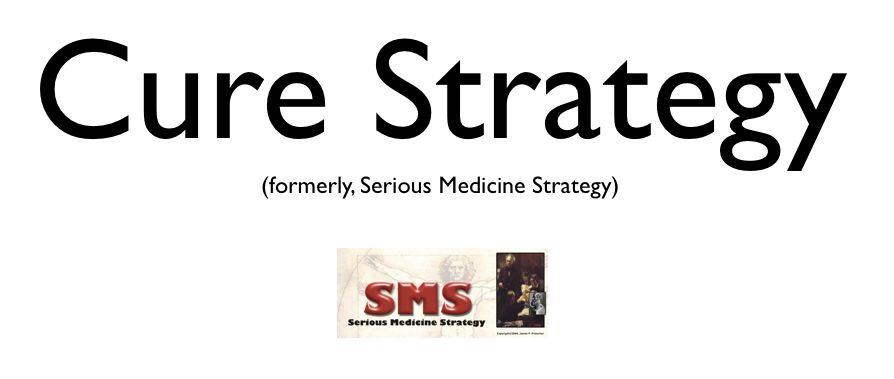
Are the “data” behind Obamacare just as phony as the “data” behind global warming? And the “data” behind the stimulus package? Even the Mainstream Media is having its doubts.
The headline in today’s New York Times reads, “Report Cited by Obama on Hospitals Is Criticized.” The Times story concerns new criticism of the Dartmouth Atlas of Health Care, published by Dartmouth University’s Institute for Health Policy and Clinical Practice. The Atlas purports to show that there has been great variation in healthcare spending across the US, state by state, hospital by hospital, even though healthcare outcomes were not necessarily better at at the higher-spending states and hospitals.
For more than 20 years now, the Atlas has guided policy. It has been particularly popular among liberal policy wonks, because its findings suggested that all-seeing experts in Washington--guided, of course, by the big book--could do a better job of managing healthcare. It is from Dartmouth that the popular elite factoid, “30 percent of all healthcare spending is unnecessary” was derived. And from that 30-percent-is-wasted claim came came the further factoid, enshrined in the 2008 Democratic Party platform, which claimed that national health insurance would “save the typical family up to $2,500 per year.” Saving the average family $2500--sounds good!
But as Lt. Columbo, played by Peter Falk on the old 70s TV show, would say, “There’s just one more thing.” What if the Dartmouth Atlas is wrong? Way wrong?
That’s the argument made in a new analysis published in The New England Journal of Medicine, a mostly pro-Obamacare publication, bluntly headlined, “A Map to Bad Policy--Hospital Efficiency Measures in the Dartmouth Atlas.”
The author of the study, Dr. Peter B. Bach, a physician and epidemiologist at Memorial Sloan-Kettering Cancer Center in New York City, chops up the Dartmouth study in a crisply written 1400 words piece, zeroing on several glaring deficiencies in Atlas methodology. Bach notes, for example, that Dartmouth doesn’t measure the results of such treatment, only the cost of the treatment. Bach uses this example:
Say Hospital A and Hospital B each has a group of patients with a fatal disease. Hospital A gives each patient a $1 pill and cures half of them; Hospital B provides no treatment. An Atlas analysis would conclude that Hospital B was more efficient, since it spent less per decedent. But all the patients die at Hospital B, whereas only half of the patients do at Hospital A, where the cost per life saved is a bargain at $2. Although $1 cures are rare, changing the price or efficacy of the pill does not alter the fundamental problem with examining costs alone when cost differences are sometimes associated with outcome differences.
In other words, in the eyes of Dartmouth, a hospital where all the patients died cheaply is a better hospital than the one where half the patients survived, albeit at some cost. Ask yourself: Which hospital would you like to go to: the one offering a zero percent survival rate, or the one with a 50 percent survival rate? Sometimes, cheaper is not better!
It might seem hard to believe that Ivy Leaguers could make such elementary mistakes in methodology. But who says it’s a mistake? Having seen the deep corruption of “Climate-gate” and “Stimulus-gate,” we can put aside concerns about competence and go right to the question of whether or not these scientists and experts are worthy of our trust. As we have all learned, scientists can be politicized just like anyone else--some will bend their data to suit political objectives. Heck, they will even make it up.
Interviewed by the Times, Dr. Bach added: “We are about to embark on a huge transformation of our health care system. If we start with a bunch of flawed measures, it will be as devastating as putting in the wrong coordinates before a moon shot.” Well, yes, Dr. Bach is exactly right: If the Dartmouth folks had launched Apollo 11, our astronauts would have been lost in space.
But thanks to Dr. Bach’s scholarship, the likelihood that we are going to embark on a “huge transformation of our healthcare system” just got smaller.


Good article Jim.
ReplyDeleteWhen you mentioned ‘lost in space’ it reminded me that the Hubble telescope’s lenses were not ground correctly because their Quality Checking instrument was not calibrated correctly to measure the accuracy of other gauges and the lens itself.
Yes there is a lot of bad data out there. And I am glad for the likes of people like you to bring it to our attention.
Thanks for your vigilance.
Jim,
ReplyDeleteOne 1400 word commentary in the NEJM hardly counts as a debunking of 25 years of data.
Peter Bach's commentary misrepresented what the Dartmouth data say about efficiency, and you compound the problem with the bit you quoted about Hospital A and Hospital B. Do you honestly think that Dartmouth researchers would make such an "elementary mistake?" Or that anybody would try to argue that cost alone is the sole measure of efficiency? If that were true, we should pay for no medical services at all. And what motive would the "Ivy leaguers" have for taking such a position?
Spending alone does not constitute the sole measure of efficiency -- Dartmouth looks at outcomes as well, and outcomes, of course, are what we all care most about. Peter Bach's little analysis is one piece of an ongoing and important technical discussion, but it is just a tiny piece.